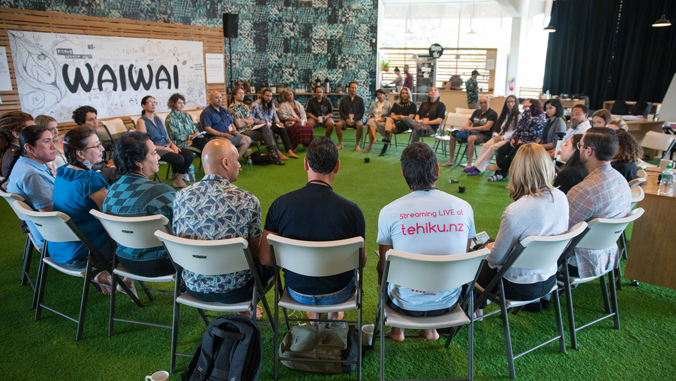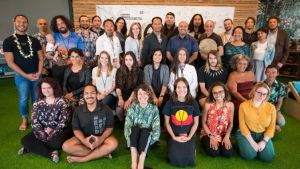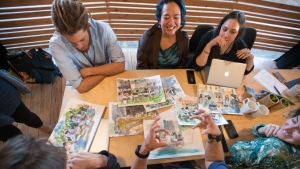
A collaboration that was fostered at the University of Hawaiʻi at Mānoa more than a year ago resulted in groundbreaking guidance on artificial intelligence (AI) surrounding areas of indigenous concern.
The Indigenous Protocol and Artificial Intelligence (IP AI) working group, comprised of more than 30 participants from diverse communities in Aotearoa, Australia, North America and the Pacific, released a position paper offering numerous ideas to consider when prioritizing indigenous perspectives in developing AI and suggesting ethical approaches to advanced computational systems.
“The position paper is rooted in multiple contexts, histories, languages and lands,” said Noelani Arista, Department of History associate professor and one of the group organizers. “It allows readers to see that while indigenous approaches are related, the knowledge that arises from different places have much to contribute to the discussion in their specificity. Native, indigenous, these catch-all descriptors are necessary where useful, but there is no one-size fits all indigeneity.”
Position paper details

The IP AI position paper features three pages of guidelines for indigenous-centered AI design. The recommendations provide a description of the issues that participants agreed were most important when building AI systems. Leaders also said the document has a broader reach for policy makers and technology developers who seek to better understand and develop ethical AI systems.
The remainder of the paper describes indigenous knowledge systems and technological practices. The diverse collection of texts include design guidelines, scholarly essays, art, descriptions of technology prototypes and poetry.
“I am most proud of the work we did in the prototyping group as we had a production manager, engineers and language and knowledge keepers from Māori, Kanaka Maoli, Crow, Northern Cheyenne, Gadigal and Dunghutti nations, who worked on the theory and design for an image recognition application that we actually produced,” Arista said. “Getting to work together, eat together, go beach together became the basis for good relations and the foundation of our work.”
Bridging cultures

A majority of the discussions took place during two workshops at UH Mānoa from March 1–2, and May 26–June 2, 2019. Arista and UH Mānoa political science PhD student Michelle Lee Brown organized the sessions along with several others. Participants came from diverse communities and most practice indigenous culture and digital technologies.
“These conversations have transformed my work as a historian because I think now about the archives, how we might organize and build its future digital bodies, and where Hawaiian knowledge will go in the future,” Arista said. “I was energized by meeting other indigenous people from the Pacific and U.S. whose work is very different from my own but who have projects that can inform my work.”
Arista added, “what was memorable was to foster a working group where people could let down their guard and not have to explain or educate all the time. A memorable moment was when we realized that we had that freedom to get on with our work without the burden.”
Other workshop participants included Jason Leigh, information and computer sciences professor; Ty Kāwika Tengan, anthropology and ethnic studies associate professor; Kaipulaumakaniolono Baker, a UH Mānoa Hawaiian theatre student; Kari Noe, a UH Mānoa information and computer sciences student; and Isaac ʻIkaʻaka Nahuewai, a UH Hilo Hawaiian language and literature student.
Nahuewai will also be translating the position paper into ʻōlelo Hawaiʻi (Hawaiian language), which will be available in fall 2020.
—By Marc Arakaki

